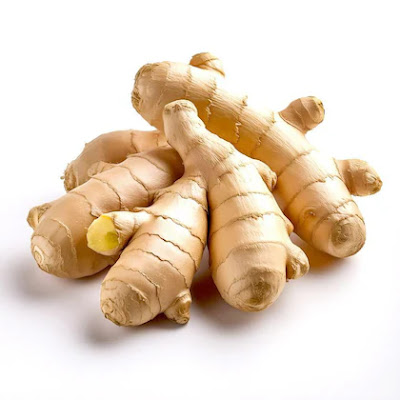Introduction:
Herbs have been celebrated for centuries as nature’s gift to humanity, providing a wide range of benefits for health and wellness. Packed with essential nutrients, antioxidants, and healing properties, herbs play a crucial role in promoting overall well-being. Incorporating these powerful plants into your diet and lifestyle can help prevent diseases, boost immunity, and enhance vitality. Below, we explor
1. Basil:
Basil, often called the "king of herbs," is widely used in cooking and herbal remedies. Rich in antioxidants, vitamins A and C, and essential oils, basil is known for its anti-inflammatory and antibacterial properties.
Health Benefits:
Basil supports digestion, reduces stress, and boosts immunity. Its compounds, like eugenol, help combat oxidative stress and lower blood sugar levels.
How to Use:
Add fresh basil leaves to salads, soups, or smoothies, or brew them into a refreshing tea.
2. Turmeric:
Turmeric, a bright yellow spice derived from the root of the Curcuma longa plant, is renowned for its potent anti-inflammatory and antioxidant properties, largely attributed to its active compound, curcumin.
Health Benefits:
Turmeric helps reduce inflammation, alleviate joint pain, improve heart health, and support brain function. It also has potential cancer-fighting properties.
How to Use:
Incorporate turmeric into curries, golden milk, or smoothies. Combining it with black pepper enhances curcumin absorption.
3. Mint:
Mint is a fragrant herb that adds a refreshing touch to beverages and dishes. It is rich in antioxidants and menthol, which provides soothing effects.
Health Benefits:
Mint aids digestion, relieves nausea, reduces headaches, and combats bad breath. It can also have a calming effect on the mind.
How to Use:
Add mint leaves to tea, lemonade, or desserts, or use it as a garnish for savory dishes.
4. Rosemary:
Rosemary is a fragrant herb known for its culinary and medicinal uses. Packed with rosmarinic acid and essential oils, it offers numerous health benefits.
Health Benefits:
Rosemary enhances memory, improves concentration, and boosts mood. Its anti-inflammatory properties support heart health and reduce joint pain.
How to Use:
Use rosemary as a seasoning for roasted vegetables, meats, or bread. You can also steep it in water to make a herbal tea.
Ginger:
Ginger, a versatile herb used in cooking and traditional medicine, is famous for its spicy flavor and health-boosting properties.
Health Benefits:
Ginger relieves nausea, soothes sore throats, and aids digestion. It also has anti-inflammatory effects, making it beneficial for arthritis and muscle pain.
How to Use:
Add ginger to teas, soups, stir-fries, or baked goods for a flavorful and healthful boost.
6. Thyme:
Thyme is a small but mighty herb with a strong aroma and impressive health benefits. It is loaded with vitamins, minerals, and thymol, a natural antimicrobial agent.
Health Benefits:
Thyme supports respiratory health, boosts immunity, and reduces inflammation. It is also effective against bacterial and fungal infections.
How to Use:
Sprinkle thyme on roasted vegetables or meats, or use it to infuse oils and soups.
7. Cinnamon:
Health Benefits:
Cinnamon helps regulate blood sugar levels, reduces inflammation, and improves heart health. It is also rich in antioxidants that protect against cell damage.
How to Use:
Sprinkle cinnamon on oatmeal, yogurt, or baked goods, or stir it into your coffee or tea.
8. Parsley:
Parsley is more than just a garnish; this vibrant green herb is packed with vitamins K, C, and A, as well as powerful antioxidants.
Health Benefits:
Parsley supports bone health, improves digestion, and detoxifies the body. Its diuretic properties help reduce bloating and water retention.
How to Use:
Add fresh parsley to salads, soups, or smoothies, or use it as a topping for pasta and rice dishes.
9. Sage:
Health Benefits:
Sage improves brain health, supports oral hygiene, and reduces inflammation. It is particularly beneficial for memory and cognitive function.
How to Use:
Use sage to flavor meats, stews, and sauces, or brew it into a soothing tea.
10. Oregano:
Oregano is a staple in Mediterranean cuisine and a powerhouse of health-promoting compounds like carvacrol and thymol.
Health Benefits:
Oregano strengthens the immune system, supports gut health, and has antimicrobial properties. It also helps reduce inflammation and combat infections.
How to Use:
Sprinkle dried oregano on pizza, pasta, or salads, or use it to season roasted vegetables.
11. Chamomile:
Chamomile is a gentle herb often used to promote relaxation and improve sleep.
Health Benefits:
Chamomile reduces anxiety, supports digestion, and alleviates menstrual pain. Its anti-inflammatory properties help soothe irritated skin and tissues.
How to Use:
Brew dried chamomile flowers into a calming tea before bedtime.
Conclusion:
Herbs are nature’s pharmacy, offering a wealth of health benefits in compact, flavorful packages. From reducing inflammation to boosting immunity and enhancing digestion, the medicinal properties of herbs are vast and varied. By incorporating herbs like basil, turmeric, mint, and rosemary into your diet, you can enrich your meals while reaping their health benefits. Whether enjoyed fresh, dried, or as teas, these herbs are simple yet powerful tools for improving overall well-being.
So, start exploring these amazing herbs today and let them become a part of your journey to a healthier lifestyle!













.jpg)
.jpg)
.jpg)

0 Comments